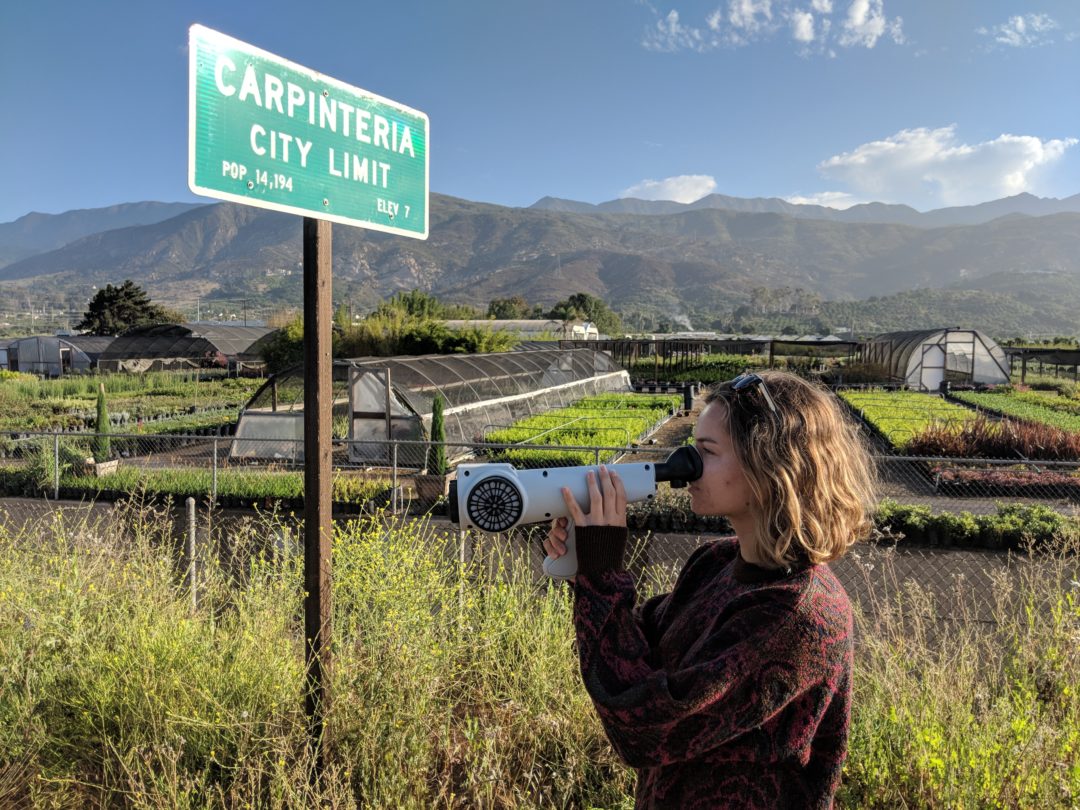Cannabis Farms Reach Agreement with Community Group to Grow Responsibly

A remarkable thing happened last week! A cannabis watchdog group praised CARP Growers member farms. We praised them right back. All at a county meeting, where both groups agreed on a path forward for cannabis farms in Carpinteria Valley to Control Odor and operate responsibly and successfully into the future. Carpinteria Valley is a great place to grow cannabis if done right and in line with the community.
It all started when past CARP Growers President Tristan Strauss began direct dialogue with Rob Salomon of the the Coalition in September 2020. Over time, they saw that cannabis farmers and neighbors had misunderstood each other. They came to a better understanding, brought in a larger group of people and decided on a path forward together. Constructive resolutions do not always happen, and we are thankful that in this case we found common ground and built trust.
CARP Growers and the Coalition For Responsible Cannabis issued a joint release yesterday:
Following 11 months of collaborative dialogue, the Santa Barbara County Coalition for Responsible Cannabis (Coalition) and CARP Growers reached an historic agreement on August 20, ensuring that cannabis farms work in cooperation with the community group to resolve odor issues in a proactive and cooperative way across Carpinteria Valley.
The agreement holds all CARP Growers member farms accountable to a partnership with the Coalition and a detailed odor abatement plan outlining a new expanded odor response process, and a comprehensive program to develop and implement next-generation odor technologies. Community engagement in the plan will be encouraged for reporting, investigating and resolving cannabis odor incidents.
The Coalition was formed in 2019 to advocate for closer oversight of cannabis farming and relief for odor nuisances in Carpinteria Valley and across Santa Barbara County. The Coalition has been an active participant in the Santa Barbara County cannabis permitting process, appealing cannabis projects that do not meet its community-focused standards.
Coalition Board Member Rob Salomon said, “In partnership with CARP Growers, the Coalition developed a comprehensive voluntary upgrade to the County’s odor control program. All CARP Growers members will comply with that program, and unlike today, odor will not be tolerated in schools, parks and public areas. We credit CARP Growers and its member farms for coming to the table with sincere dedication and a shared interest to make local cannabis farming better.”
CARP Growers (aka Cannabis Association for Responsible Producers) was created in 2018 to foster better relationships within the community of Carpinteria and require its members to follow best farming practices, including using best available odor control technology. Each CARP Growers member will be individually bound to the agreement at over 20 farm project sites at existing greenhouses across Carpinteria Valley.
“We appreciate the Coalition for working with us and building trust over these many months. As fellow members of the community, CARP Growers are eager and motivated to eliminate odor issues. This agreement will create a new, more transparent odor complaint response program, where residents can work directly with operators to track and resolve odor issues,” said Tristan Strauss, CARP Growers Vice President and CEO of Headwaters, which operates several farms in Carpinteria and a state-wide cannabis wholesale network.
The Coalition has previously negotiated Odor Abatement Plans with individual cannabis farms, but this settlement represents the broadest group of cannabis farms and a proactive and expansive plan to resolve odor issues on a Carpinteria Valley-wide scale. Coalition Attorney Marc Chytilo stated: “The agreement between the Coalition and CARP Growers, including the two supporting documents developed between ourselves and the County, sets forth a comprehensive program to control odor in Carpinteria. We are currently partnering with the CARP Growers regarding research and development to identify viable alternatives to vapor phase, including carbon scrubbers that are designed to mitigate odors in venting greenhouses.”
The agreement includes monitoring for odor causing compounds, a system of wind stations to help identify odor sources, the use of the best available odor controls, expansion of areas where odor is not allowed, and a tiered response system to address odor incidents quickly and comprehensively.
“I’m very proud of our association for negotiating such an expansive and historic agreement which will truly create more transparency and accountability with our neighbors, long term,” said Autumn Shelton, CARP Growers President and co-owner of Autumn Brands farm in Carpinteria. “We have made enormous investments in advancing the science and research and development around odor over the last year. This is a new scientific field, and we are learning a lot each day about what compounds cause odors, and how to best mitigate and monitor odor.”














